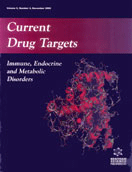Abstract
The crucial role of the immune response is common to diabetes mellitus (DM), rheumatoid arthritis (RA) and periodontal disease. This review identifies advances in this field and exciting paradigms in their management. Uncontrolled hyperglycaemia in diabetic patients results in the formation of advanced glycation end products (AGEs), which are detrimental to cell structure and function. Altered host resistance such as defective migration of PMN, impaired phagocytosis and an exaggerated inflammatory response to microbial products also compromises healing in uncontrolled diabetic patients, further compromised in smokers. Nicotine has well documented effects on the immune response, cell adhesion proteins and apoptosis which affect the severity of disease presentation and response to treatment. Rheumatoid arthritis is a multifactorial disease that results in severe destruction of synovial cartilage and bone. Local secretion of large amounts of TNF-α and IL-1 due to activation of immunocompetent cell s characterises the pathophysiology of RA. This has lead to the emergence of TNF-α inhibitors such as etanercept and infliximab in its management. Periodontal disease has a microbial aetiology. But it is similar to RA, in its cyclical pattern of destruction associated with high levels of pro-inflammatory cytokines, which can persist after removal of the antigenic stimulus. Non steroidal anti-inflammatory agents (NSAIDs) have been used as an adjunct to mechanical removal of bacterial antigen, in the management of periodontal disease. The non-reproductive functions of steroid hormones include effects on immunocompetent cells, fibroblasts and osteoblasts, which affect the initiation and progression of inflammatory diseases. Hormone replacement therapy could be another facet in a multifaceted treatment approach in these patients, where indicated.
Keywords: diabetes, rheumatoid arthritis, periodontal diseases, nonsteroidal anti-inflammatory agents(nsaids), nicotine, endocrine immune modulation, diabetes mellitus, hyperglycaemia, polymorphonuclear leucocytes(pmns)
 18
18


















